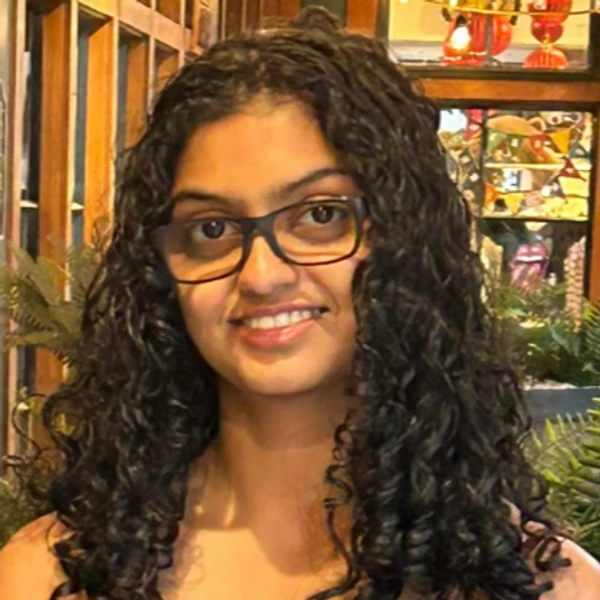
Religion
Hindu
Hobbies and interests
Tutoring
Business And Entrepreneurship
Advocacy And Activism
Track and Field
Writing
Reading
Biomedical Sciences
Foreign Languages
Mathematics
Reading
Literary Fiction
Literature
Mystery
Contemporary
I read books multiple times per week
Ria Jayanti
1,495
Bold Points1x
Finalist1x
Winner
Ria Jayanti
1,495
Bold Points1x
Finalist1x
WinnerBio
I’m passionate about using science to improve the welfare of children, especially in underserved communities.
In 2022, I founded Mission Math, a youth-led nonprofit offering free K-12 STEM programs and events. I’ve led its growth to 4,000+ students across 40+ countries. I’ve also organized speaker panels with professionals from Pfizer, Georgia Tech, and UW, attracting over 80 attendees.
In addition, for the past year, I’ve researched drug-resistant pediatric epilepsy under the guidance of a Stanford graduate student. I developed a Python model that detects seizures in children with 100% accuracy and predicts them with 89%, designed for integration into at-home epilepsy monitoring technology. I also lead my school’s Biotechnology Club, teaching 20+ students lab skills including DNA micropipetting and gel electrophoresis.
In HOSA: Future Health Professionals, I compete in the Human Growth and Development event, studying 3 nursing school textbooks on children's cognitive and physical development. I've placed 2nd (2025), 4th (2024), and 5th (2023) at the WA State Conference, and 8th at the 2024 International Leadership Conference out of 165+ state and national finalists.
Outside of academics, I love spending time with animals. Since 2022, I've volunteered at Seattle Humane, where my peers and I have raised tens of thousands of pounds of pet food for local food banks.
Education
Redmond High School
High SchoolCareer
Dream career field:
Biotechnology
Dream career goals:
Research
Biomedical/Medical Engineering
Student Researcher2024 – 2025
Public services
Volunteering
Mission Math — Co-Founder, Co-Executive Director2022 – PresentVolunteering
Seattle Humane — Humane Teen Club member2022 – Present